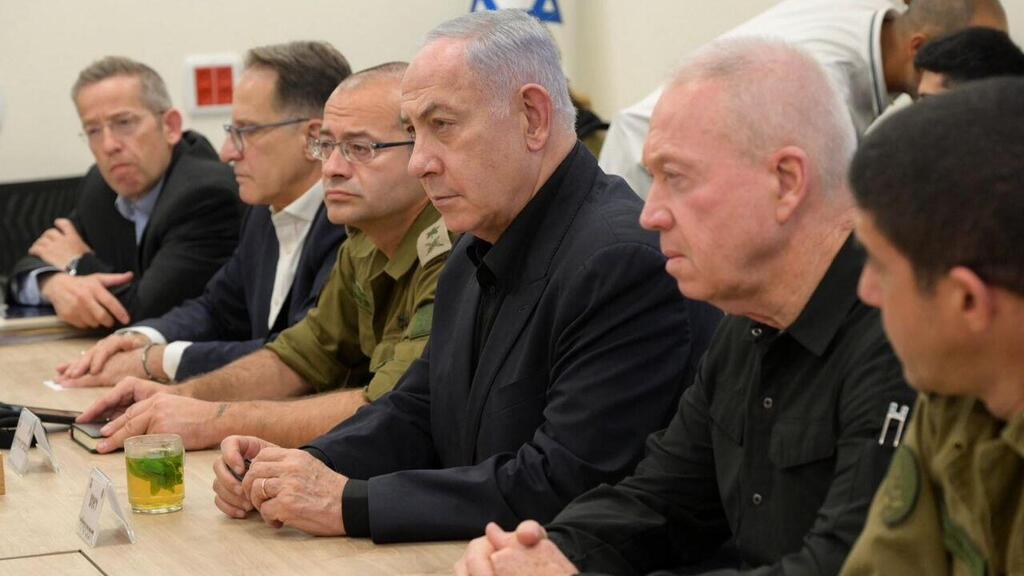Getting your Trinity Audio player ready...
A senior official in the government who participated in the sensitive meetings regarding the Philadelphi Corridor, explained Sunday that the location of the bodies of the six hostages who were recently murdered may change the equation for cease-fire and hostage exchange deal as outlined in the political-security cabinet on Thursday.
"The great U.S. pressure that was there has intensified many times over. There is a slow understanding that is seeping in that there will probably be no choice but to pursue a deal," said the senior official.
However, it is still unclear whether there is a possibility for Defense Minister Yoav Gallant's call to immediately convene the cabinet and reverse the decision that was made under which Israel will remain in any and scenario control the Philadelphia Corrido in the southern Gaza Strip. Gallant was the only one minister who opposed the cabinet's decision. After that tense and yelling discussion between him and Prime Minister Benjamin Netanyahu on Thursday night, two days before the discovery of the six dead hostages, Gallant claimed that it was a choice between the Philadelphia Corridor and the return of the hostages.
1 View gallery


Prime Minister Binyamin Netanyahu and Defense Minister Yoav Gallant in a meeting at the Defense Department headquarters in the Kirya
(Photo: GPO)
Despite the assessment that the tide is now tipping in the direction of a deal, another senior official said that opinions in the cabinet are still divided, because in their opinion the Israeli public refuses to give up on the Philadelphia Corridor. Such a concession, he believes, "will once again constitute the same injury to the sense of security and not only to the security of the state." Therefore, claims the Likud Party of of the prime minister, Gallant may be faced with a choice whether to align himself with the opinion of the majority - or resign.
Although both Hamas and a mediator, Egypt, are strongly opposed to Israeli control of Philadelphi, it is possible that some compromise will be found that will allow each side to say that its position has been accepted.
As part of the debate that became public, Gallant wrote Sunday: "The political-security cabinet must convene immediately and reverse the decision made on Thursday. It is too late for the hostages who were murdered in cold blood. We must return home the hostages who remain in the captivity of Hamas."
Cabinet member Bezalel Smotrich, a government minister, replied that "Hamas murdered our hostages in cold blood precisely to make us surrender and accept its demands and allow it to survive and restore its capabilities and attack Israel again as part of the Iranian annihilation plan. The cabinet will not allow a surrender deal that neglects Israel's security, but will instruct the IDF and the security establishment to exact heavier prices from Hamas and those who give it shelter and cover, and will intensify the war until its destruction and the return of the hostages. This morning the Gaza Strip must shrink. The IDF forces should move 2 km inland from the current border and clear everything in their way."
Netanyahu himself, after a few hours of silence, said in a recorded statement: "Our efforts to free our hostages are continuing constantly. Since December, Hamas has refused to hold genuine negotiations. Three months ago, on May 27, Israel agreed to a hostage release deal with full backing from the US. Hamas refused. Even after the U.S. updated the deal framework on August 16 – we agreed, and Hamas again refused. In recent days, as Israel has been holding intensive negotiations with the mediator in a supreme effort to reach a deal, Hamas is continuing to steadfastly refuse all proposals. Even worse, at the exact same time, it murdered six of our hostages. Whoever murders hostages – does not want a deal."



